From the moment the 1st edition of The Insiders’ Guide to Becoming a Yacht Stewardess was released back in 2006, I began receiving this question, most often from fellow writers: “So why is it Insiders’ with an s’ (as in a group of insiders), and not Insider’s with an ‘s (as in, making the reader a sole insider)?” And believe me, it was something my first edition editor, Heidi Newman, and I put a lot of thought into when we choose to go with The Insiders’ Guide.
Answer: It’s because, in the research and writing of my book, I met with and interviewed more than two dozen yacht industry insiders, from crew recruiters and training experts to current and former crew & captains. Thanks to these individuals and the contributions of their insider, professional knowledge, I can say with total confidence that you will receive all the exclusive advice and practical guidance you need to get started—and succeed!—as a luxury yacht steward/ess. It truly is a collective group of “insiders” who made this book what it is. And I offer them my sincerest thanks for their contributions & support. You can meet many of them below:
Tips and Advice from Superyacht Industry Insiders
Following are just a few samples of expert advice you can find in the yacht-crew career guide portions of the The Insiders’ Guide to Becoming a Yacht Stewardess:

Tish Owen George, a chief stewardess and yachting professional for over 15 years. Tish contributed a tremendous amount of expert advice to “The Insiders’ Guide to Becoming a Yacht Stewardess.”
“At some level, anyone can do this. You give me any girl or any guy, from anywhere, who has the right attitude and some sort of retention for ‘do it this way’—and who can follow the rules—and I can make that person a great stew. It just takes a little bit of dedication and some pride in your work. Well, it takes a LOT of dedication.… You have to put your time in, and that’s sometimes what people don’t get.”
and
“You’ll have those good charters that you tell people about: ‘Oh, it was so fun, we became such good friends, we write all the time, blah blah blah’… But not all charters are like that. You will get these people—especially when the money gets REAL big—who are used to getting what they want, and some people handle that well and some people do not. You need to get over it. You are basically domestic help…only on a yacht. And this is something I used to have big talks about with the stews I managed. You need to leave that ‘I’m too good for this’ attitude behind when you work in this industry.”
—Tish Owen George, a chief stewardess and yachting professional for over 15 years
![]()
“Every owner, guest, charter client and friend of these key investors in our market, whoever steps foot on board one of the 5,000-plus yachts, needs to be treated with the most incredible level of service, professionalism and attitude that cannot be experienced anywhere else on the planet. These well-oiled machines, both in interior and engineering terms, should be the ultimate escape and experience so that every owner loves spending time on board and tells his friends and colleagues that it’s the most fun you can have in the world. If every crewmember can play their role in ensuring that our client base get the best out of yachts, then it is fair to say that crew will be one of the most important parts of the triangle that fuels our fire and makes our industry burn brightly.”
—Martin Redmayne, Chairman of The Superyacht Group
![]()
“There isn’t a specific type of person best suited for this type of lifestyle, in fact the beauty of yachting is the diversity of crew. The industry is a cosmopolitan tapestry taking in all types of people, regardless of age or nationality. There is a place for anyone with a positive attitude. It is most definitely hard work, but the experiences and camaraderie one can take away from working on a yacht are unmatched. It’s a wonderful combination of pressure and excitement and a unique opportunity for those willing to put in the time and effort.”
—Mike French, President of International Crew Training, a Fort Lauderdale-based crew training and placement facility
![]()
“The A-#1, most important thing is being able to get along with other people. You live, sleep, breathe, and work with so many different people. It takes a lot of flexibility. You have to actually enjoy making other people happy and taking care of others’ needs. This is a service industry, and you are making sure the guests have everything they need at any time, and all the time.”
and
“It’s not the boat that makes the experience, it’s the owners and the crew.”
—Ami Ira, owner and operator of Crew Unlimited and CU Yacht Charters
![]()
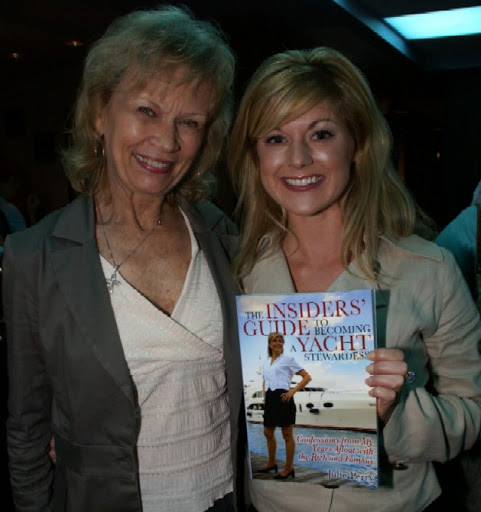
Kristen Cavallini-Soothill, owner & operator of American Yacht Institute, with Julie during the book launch party for the 1st edition of “The Insiders’ Guide to Becoming a Yacht Stewardess” in Oct. 2006.
“Worldwide events have changed the yachting industry, and I am witnessing through teaching aboard and at the various yards that more professionalism is expected. We recruited people into the industry several years ago, and then the economy fell. The end result is that we ‘weeded out’ some of those who didn’t take our industry seriously enough, and what has come about is a push for more professionalism, and a bit of class! Service can be formal or casual, but the professionalism is still expected… Personal qualities that are needed: professionalism, accommodating, energetic, aware, team-
oriented, imaginative, proactive but within guidelines, easy to be around.”
—Kristen Cavallini-Soothill, owner and operator of American Yacht Institute
![]()
“The steward/ess role encompasses many duties and attributes. [Stews] are responsible for housekeeping & interior maintenance, guest service including table setting & silver service and laundry. You need to be flexible and highly organized with an impeccable eye for detail. The level of service is second to none and the super stew needs to be able to think ahead and anticipate the guests’ needs whilst providing the utmost luxury treatment with a wow factor!”
—Peter Vogel, Interior Yacht Services UK and Warsash Superyacht Academy, Southampton, England
![]()
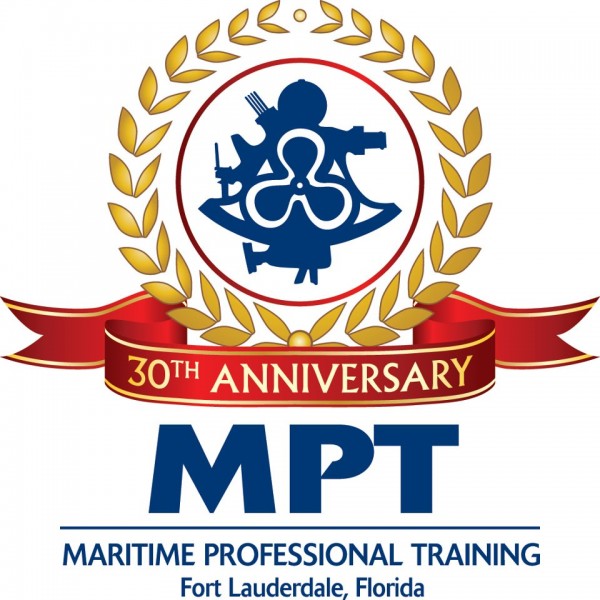
Thanks to both Julie Liberatore and Amy Morley-Beavers of Maritime Professional Training for their valuable contributions to “The Insiders’ Guide to Becoming a Yacht Stewardess.”
“The interior staff generally have more interaction with guests or owners on a daily basis than any other crew member. Very often a guest’s overall experience onboard a yacht—good, bad, or indifferent—will be based on this interaction. A stewardess has the power to truly make the onboard experience exceptional.”
—Julie Liberatore, Regulatory Liaison at Maritime Professional Training (MPT)
“While most people will readily accept the advantages of senior officers such as the Captain, Mate, and Engineer participating in formal training, it’s also important for interior crew.”
—Amy Morley Beavers, VP Regulatory Compliance and Academic Principal at MPT
![]()
“The crew can make or break the charter, period. If the crew is top notch, treats my guests with respect, and takes good care of them, we have a successful charter and happy clients… We charter brokers spend months of each year traveling around to meet the crew and visit the yachts. We do this to be sure we can count on the crew to offer the best service possible to our clients. A professionally trained crew is imperative to the operation and success of a charter yacht. Our clients are used to five-star service in their homes and wherever they travel. The yacht crew must be trained to this level.”
—Debra Blackburn Boggio, Charter Broker for Fraser Yachts Worldwide
![]()
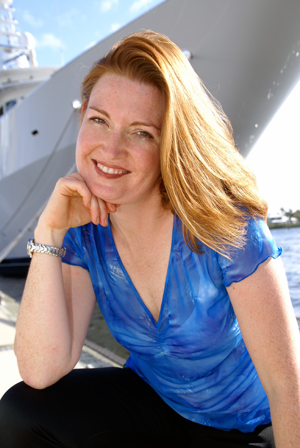
Victoria Allman, Megayacht Chef and Author of “SEAsoned” and “SEA FARE”, (Julie’s two favorite books about working on a yacht).
“It’s a delicate relationship between chef and steward/ess; one that can make or break at trip. When the bond between the two is strong, the guests get the best possible service, food goes out hot, pertinent information is passed to the appropriate people, service is smooth, and the whole crew is happy. This is not always the case. When the relationship between chef and stew has soured, the guests suffer, the rest of the crew are affected, and important information that could make the trip go so much easier is often left unsaid.…What is essential to me, as a chef, even more so than experience, is that we are all working on the same page; to deliver the best experience to the guests as possible.…My advice to every crewmember, in any position, is to work hard at building relationships with your crew mates, chef or not.”
—Victoria Allman, Megayacht Chef & Author of SEAsoned: A Chef’s Journey with Her Captain (2011) and SEA FARE: A Chef’s Journey Across The Ocean (2009 & 2nd Edition, 2013).
![]()
On Entry-Level Crew Training:
“The introductory interior and exterior courses, even though these are not mandatory courses, have been developed to give you the skills, knowledge, and confidence to understand what your job entitles as a professional steward/ess aboard or deckhand aboard a superyacht.”
—Joy Weston, owner and operator of Crew Pacific (Australia) since 2001
![]()
On the skills required to become a yacht steward/ess, and how one can stand out from the crowd of applicants:
“Having a wide skill set is without a doubt an advantage: massage, beauty, and also certification as a trained nurse/ medical are all seen as a real benefit. The more you, as a crewmember/candidate, can offer to the yacht the better.”
—Paul Rutterford, Marine Recruitment Manager at Viking Recruitment
![]()
“When you work on a yacht, you are all about service, so consider this: The highest level of service is service within a private living environment, and the level of service performed on a yacht is often the highest level of all. This kind of service cannot be outsourced; the responsibility is all on us. The work yacht stews do in a private service environment adds value and enriches the lives of the owners and their guests. By agreeing to serve, we agree to follow someone else’s agenda, and to do so with an open heart. As Gandhi said, ‘The best way to find yourself is to lose yourself in service to others.’”
—Alene Keenan, owner and operator of Yacht Stew Solutions and author of The Yacht Service Bible: The Service Manual for Every Yacht
![]()
“If they can get the attitude right, they will be fine: willing to work, willing to learn, willing to listen, willing to pay their dues…and follow the protocol…Bingo!”
and
“Go where the boats are. For higher-echelon job seekers with tons of experience—say, a captain, a chef, or a chief stew with a really good reputation—they can be anywhere and get hired. But for the rest of them, especially novices, they’ve got to be where the boats are.… Let me stress that again: They are not going to get hired unless they go where the boats are. Most all the clients I have are not going to hire somebody sight unseen.”
—Lynne Cottone, Crew Placement Specialist with Luxury Yacht Group
![]()

Captain Carl Sputh, a veteran megayacht captain and Julie’s childhood friend (who she credits for convincing her to join the yachting industry)
“The yacht’s owner and guests have entrusted crewmembers with personal information that should not be repeated. This yacht has an exceptional collection of art, multimedia equipment, and expensive objects onboard. Specific objects and/or the prices of any items onboard should never be discussed. All crewmembers would suffer deep remorse if the safety and security of this yacht and its passengers were compromised by a slip of a tongue. If asked questions regarding the vessel, her owner, or her guests, inform curious people courteously of her size and the fact that she is ‘company owned’ and available for charter without getting into other aspects of the boat’s history.”
—from an actual Crew Manual, contributed by veteran megayacht captain, Captain Carl Sputh
![]()
“The PYA (Professional Yachting Association) has done an extraordinary job of putting together guidelines for interior training at all levels; this for the purpose of someday becoming mandatory, just like certifications for exterior positions on superyachts are. High standards must be maintained, and with all interior crew having this training, it will help ensure that level of service. In addition, if this training becomes required for specific positions, it will make the hiring process a little less painful knowing the crew has these certifications.”
—Heather Adams, Crew Placement Specialist at Crew Unlimited
![]()
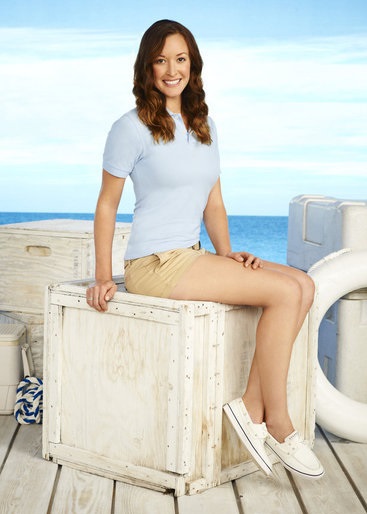
Chief Stewardess Adrienne Gang of Bravo TV’s “Below Deck.” Photo Source: BravoTV.com
Adrienne wrote the Foreword to the 2nd Edition of “The Insiders’ Guide to Becoming a Yacht Stewardess.”
And a testimonial: “Following several years of improvisation, close calls, short cuts, and lucky guesses I was really beginning to wonder if I was ever going to put all of the pieces together. As if by divine design a captain of mine, seeing my obvious struggle, handed me a copy of Julie Perry’s book The Insiders’ Guide to Becoming a Yacht Stewardess. I was ecstatic to finally have a resource in my hands that had so many of the answers to questions I had been scouring the earth for in the previous years.
“Over the years, I have given or recommended this book to any woman or man thinking about getting into yachting, and I keep my own personal copy on hand at all times. I know that when living on a yacht, space can be limited for your personal effects, but this book is definitely worth its weight.”
—Adrienne Gang, Chief Stewardess on Bravo TV’s “Below Deck.” Taken from the Foreword to The Insiders’ Guide to Becoming a Yacht Stewardess, written June 2013
![]()
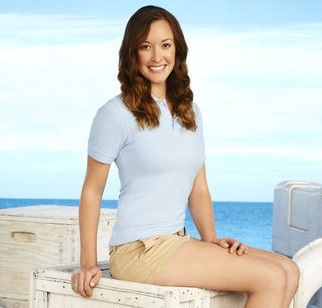

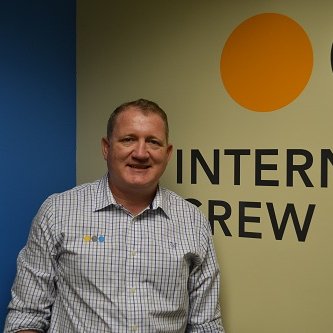


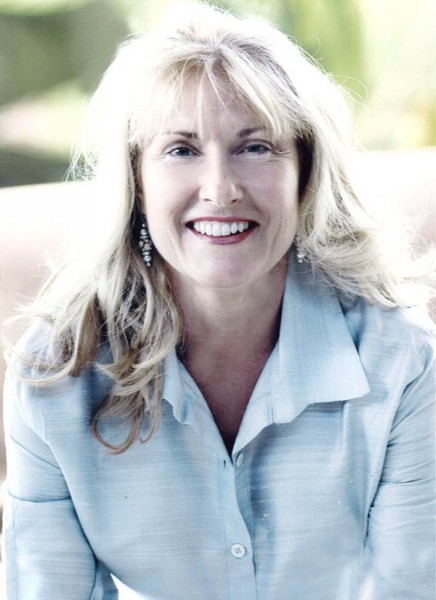


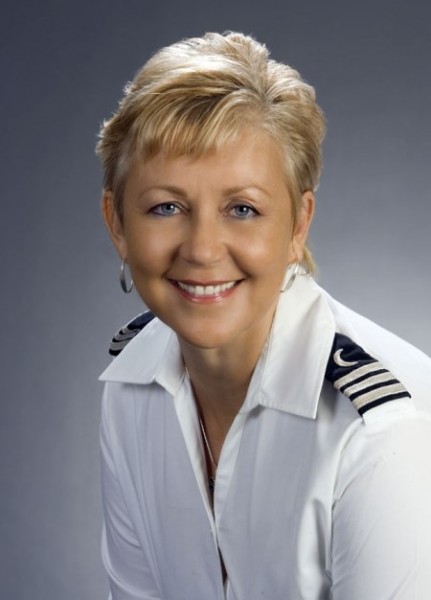
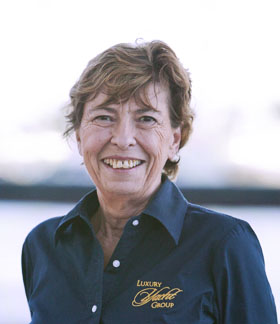





[…] with the first edition, you’ll find insider advice from more than two dozen industry professionals, from crew recruiters and training experts to […]